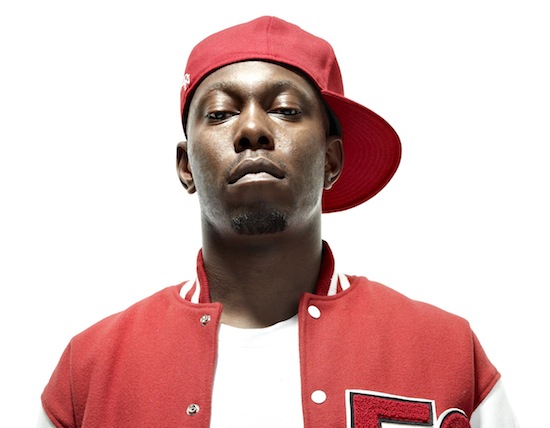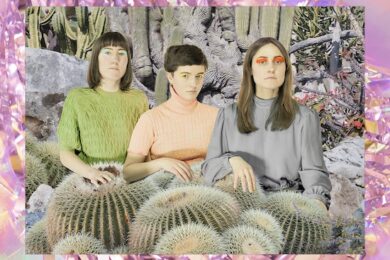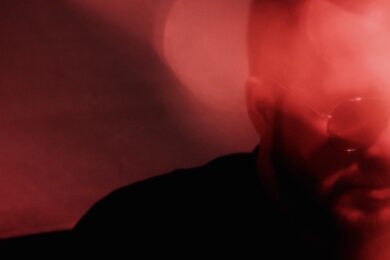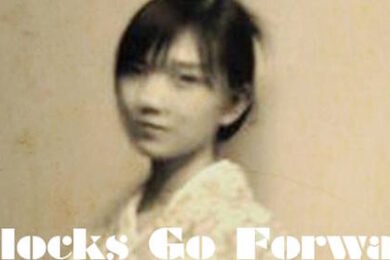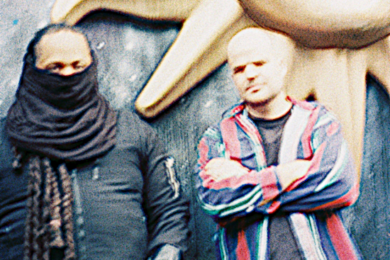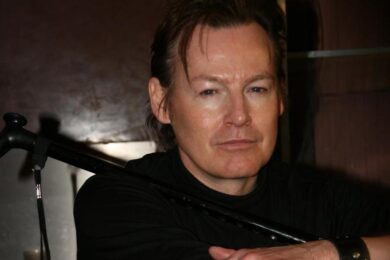It’s ten years since the release of Dizzee Rascal’s Boy In Da Corner, the debut album that catapulted 19-year-old Dylan Mills into global stardom, amplified by his Mercury Music Prize win the same year. For many listeners, the post-prize hype was their first taste of grime, which up until that point had been a suffocatingly localised scene based mainly around the E3 postcode. For Dizzee, it transported him from sparring on pirate radio to touring with Justin Timberlake in a matter of months.
Despite being a pioneer of the grime scene, it’s not a chapter of his life that Dizzee is keen to dwell on, both musically or in interviews. Whereas for Boy In Da Corner, Dizzee fashioned his own idiosyncratic beats inspired by UK garage and US hip-hop (especially southerners like Ludacris and Three Six Mafia), since 2009’s Calvin Harris-produced pop banger ‘Dance Wiv Me’, he’s enlisted the help of the industry’s star producers (new album The Fifth features the likes of RedOne, Teddy Sky, and Jean Baptiste) to create a polished, slick sound a million miles away from the competitive battles heard in Deja Vu FM’s makeshift tower block studio. On The Fifth he raps, "Forget all that nostalgia shit / I haven’t got time" and "Everyone’s watching me because I’m an overachiever", dismissive of those who’d favour him making Boy In Da Corner over and over again, and of the routine that sees grime MCs preach making money and aspire to getting out of the hood then accuses them of selling out then when they do so.
Lyrically, his tracks have changed radically too. Dizzee’s astutely observed storytelling (think Boy In Da Corner‘s ‘Jezebel’) has been changed up for anthemic club-pop tracks about having a good time that play to a far more universal scope of experience. It’s a switch he’s said in the past was inspired by hearing Snoop Dogg’s Doggystyle on repeat at a house party and realising the power of a solid, uplifting party record.
But despite all the good time chat, Dizzee is far from just playing scenester. When I met him before the release of The Fifth, I was struck by his reverence of professionalism and graft, almost Thatcherite correlation between working hard and doing well, and determination to keep his head down, work constantly and stay out of the beef. Unsurprising perhaps considering, as Dan Hancox points out in his recent ebook Stand Up Tall: Dizzee Rascal And The Birth Of Grime, that he grew up like many Bow teenagers in the double-edged shadow of Canary Wharf – at times signifying oppression and at others, the potential of future prosperity. Now, his days of postcode wars, crime and getting expelled from school are long behind him and it’s clear he’s found kinship in the American Dream-inspired work ethic of LA. The Fifth is not only his first album released on Universal (2009’s Tongue n’ Cheek saw him break from long-time label XL to release through his own Dirtee Stank imprint), but it’s also the first record he’s made in the States, negotiating the competitive vying for star producers’ best tracks.
But painting him as in thrall to the workings of the US pop machine is largely ignoring Dizzee’s own talent as a label boss and shrewd business sense. All his biggest hits have been released on his own label – it’s a big deal when you consider that ‘Dance Wiv Me’ was the first independent UK Number One in 14 years. As well as courting the mainstream, Dizzee still puts energy into sourcing and releasing new talent and grime stalwarts through Dirtee Stank free from the "bullshit pressures of other labels".
The Quietus met up with him at Dirtee Stank’s south London headquarters to talk about working in LA, southern rap, and being a celebrity.
The Fifth is the first album you’ve released on Universal. What was the thinking behind teaming up with them rather than putting it out on your own label?
Dizzee Rascal: This time around we’re trying to get the worldwide thing. We already knew we’d built up a fan base over here over the years, especially with what we did on our own. It just felt like time. Universal approached us at the Brit awards after I performed with Florence. Apparently Darcus [Beese] was like, "Why isn’t he on our label?" There was a bunch of negotiating, it went on for a year, working out what we wanted and how things were going to be done. We just wanted to get that big push and to see what it was like to work with the machine.
How have you found the process?
DR: To be fair, it’s been alright. They accepted the album first time around, we just delivered it. How it was made was very different to my previous albums. I did it basically like how the big pop stars do it. I went over to LA, bounced from studio to studio with different producers and came out with a bag of stuff. It’s just full of hits. But working within something as big as Universal, sometimes it can get frustrating going through different people.
Was it something you were worried about before you started?
DR: Yeah, that’s why I didn’t sign to a major label when I first came out.
It’s meant you’ve had access to some huge names – Jessie J, will.i.am, Robbie Williams…
DR: Some of that had nothing to do with Universal actually. will.i.am – I did that myself. I’d been in the studio with him before and I still had him in my phone book so I hit him up.
What was it about those particular artists that motivated you to collaborate with them?
DR: With will.i.am, he’s stepping in some massive pop club bangers. It’s a big calling card. I respect what he did with that breakthrough. No matter what people want to say, Black Eyed Peas were a serious hip hop act, the dancing, the breaking, the music, all that shit. It’s about crossover. He told me that when he heard ‘Bonkers’, that changed everything for him, it was a pivotal point. Ironically it was [Black Eyed Pea’s] ‘Boom Boom Pow’ that knocked ‘Bonkers’ off the charts, so we’ve got a bit of history there!
What about Robbie? That’s quite an unexpected hook-up.
DR: We sent that track [‘Goin Crazy’] to Example, but he didn’t like how it came out so he didn’t do it. Nick (my manager and partner) was having a meeting and Robbie’s name came up. It was a no-brainer. People have got mixed feelings about Robbie (apparently). I just know that he’s Robbie Williams – he’s massive, that’s all I know! He nailed it. Working in the studio with him was cool. I got there at about six in the afternoon and then stayed until six in the morning. We only worked for like two hours, the rest of the time we were just chilling out the back. The way Robbie handles everything… he’s a star, but there were never any pretensions, no ego. He put effort in.
There are some star producers on The Fifth too – Jean Baptiste and RedOne, for example. Are you ever concerned about having all these massive producers with their own style and agenda? Has it been difficult losing that kind of control?
DR: Nah, it’s the next level thing. The people that I’m jumping in with, like you said, they’re super established and got their thing anyway. The best I can hope for, when I get in there, is that they bother to give me the good shit and you don’t just get the dregs. I make a habit of sitting in the studio with producers. They’ll bring up stuff that they think you want or they think you should have, and I’ll be like, "Yeah yeah, that’s wicked, but show me some more!" We dig through the shit on their computer, and then I’ll be like, "Stop, I want that one."
You’re making almost exclusively upbeat party music now. What was the initial motivation to make that change?
DR: A few things. Between my last album and this one, I moved to Miami. I was there a lot, and in LA, Texas and Ibiza, just watching the charts. I wanted this album to be the most uplifting, happy album I could make. With Tongue n’ Cheek, I dipped my foot in and it worked. The last album was almost a response to ‘Dance Wiv Me’. I didn’t realise it was going to do that well and so I thought, "Right, I better make an album", and we just carried it on. But with this one, I’m in it to do it properly.
It’s the first album you made in the States, too, did that feel different?
DR: Yeah, fully. Going around all the different studios in LA. I’d like to do it like that again, because I’m still trying to navigate and work out how it’s done. And the people that you bump into… I walked into one studio and Chris Brown’s in there with Spike Lee. And they got Michael Jackson’s glove in a box, because that’s where they made Off The Wall! Walk around the corner and Young Jeezy’s pulled up and Kelly Rowland is over there, or somewhere, or I think it was someone like Kelly Rowland, whatever. I get in with [producer] Tim Anderson and the lady from the fucking B52s is about! Luckily, I’ve connected with everyone I’ve worked with straight away. No bullshit. I’m the sort of guy that likes to work, I’m not the dude who will sit in the studio for a week trying to come up with some shit. We’re going to do two songs at least today. We work fast.
Are you inspired by the US creatively too? There’s a real Miami tinge on ‘Life Keeps Moving’, for instance…
DR: LA is as much of an influence as well. I spend more of my time in Miami, but yeah, it’s LA really. It’s the first place I’d ever been to outside of England. I first went there to shoot the ‘Fix Up, Look Sharp’ video, I just loved it. Something about it just resonates with my soul. Also, people are there to work, five days, no fucking around. I find Miami’s more of a party town, unless you’re in with Cash Money [Records] or that network of people, Club Live, Drake and that. But with LA there’s so many people to work with, they’re on their fucking shit. I wake up, write something, have some breakfast, chat with some people for a bit around the pool then I’m in the studio. I’m in a good mood every day.
What about the Southern states too – I’ve read you talk about Southern rap being a massive influence on your early work?
DR: There wouldn’t have been Boy In Da Corner without Three Six Mafia. I made my beats modelled on the simplicity of what they were doing: "I, I, I love you" – just the way I used to hit notes, even tracks before I got to that point, it was all modelled on that music. Also, I found it easy to produce. I’m not the musical guy. I can’t read and play music like that, but put some drums and a sample in front of me and I can whip it up nice, and I’ll work out some keys and find some interesting instruments to put under it. My basis for making music was that. It just happens that some ten to twelve years later, it’s the dominant force in hip-hop.
I know that trying to convince US record labels to take on Tongue n’ Cheek was a bit of a challenge. You definitely courted EDM, before anyone knew quite how massive it was going to be over there. Has it been easier this time around?
DR: It’s too early to say. My situation in America, I’m still not sure. I’m not really signed over there yet. With the worldwide thing, I’m kind of concentrating on here first and seeing what happens. I’ve definitely got the music for it. But the EDM thing, it’s still not an MC-based thing, it’s a DJ thing. The emphasis is on the DJ again, which is a kind of a hip hop style or how it originated anyway. Early on while making the album, I was hanging around with Erick Morillo, and he was telling me the story of how they were all early hip hop dudes who started doing house. They weren’t big where they were from but they came over to Europe and they were fucking kings. They were at the forefront of things, that’s just the way shit is.
But I think things are changing. It’s kind of interesting as there are loads of US-based producers making grime-influenced beats right now. The kids that grew up listening to Boy In Da Corner are coming of age and making their own stuff. When I chatted to Le1f last month he was saying wouldn’t have got into hip hop without that record.
DR: That’s what’s crazy. People like Danny Brown and that came to my shows when I was over there years ago. I’ve said some shit like, "I’ve never been big in America", but I still toured and that. There’s been a bit of a gap, especially with my last album. It didn’t even come out over there so I didn’t go out there to tour. But there’s a whole generation there, even like Odd Future and that, it’s that generation that knew Boy In Da Corner. They’re a bit more open minded.
You haven’t turned your back on London altogether?
DR: Nah, this is still home. I’m not American. The thing is, when I’m there I can do all the things I want to do. The important thing for me is that I try to understand the culture. Everything I thought I knew about the country was either through TV, music, movies or hopping in and out when I did shows. You can’t just get the US through being in Miami, LA and New York. Middle America is the place to understand real America.
London has had two really crazy summers, what with the Olympics last year, then the riots the year before. You’ve played your part in both of them with the Opening Ceremony and that notorious ‘Mr Rascal’ Paxman interview. Think you’re becoming a bit of an unlikely national treasure?
DR: I’ve heard that said before! Yeah, I guess I’m a household name at this point, and that’s cool, but I don’t know, my aim is still to try to make the biggest album I can, the biggest body of work. I still consider this home. There’s just something about being English. When you travel the world you feel more grateful. I feel kind of lucky that I was raised here, more so than ever. It has its ups and downs, but I can’t imagine being from anywhere else. Talking about the riots, I’ve got something for you.
[Dizzee then puts on a rough cut of the upcoming video for ‘Love This Town’. It opens with group of teenagers walking through grey-skied Wimbledon, slowly picking up more crew through the help of BBM. With threatening body language, they crowd round a shopkeeper who is just closing up for the day. Hoods go up, faces are covered, and they prepare to ram and loot the shop. Or so it seems. But instead of weapons, their hands wield squeegees and some soap suds, to do the man’s windows. Further similar charitable acts follow. Ripping up a park bench to vandalise a telephone booth is actually a chivalrous attempt to rescue a kitten from its roof and a boisterous pseudo-mugging is in fact packing a tourist’s bag with an up-to-date tube map and some tasty snacks. There’s even a cheeky nod to the post-riot broom brigade and some pretty impressive hanging basket arranging. Yes, it might be silly, but its unwillingness to cash in on a gritty, sexed-up portrayal of the riots is pretty unique in the pop world, as is its tongue-in-cheek dig at middle class prejudices.
But then half way through the video, suddenly the mood completely changes. Riot vans pull up, the young men abandon their good deeds to square up against the heavily armoured police. Threat and menace hang in the air alongside the tear gas. At this point it looks as though the video is about to make quite a profound statement: no matter what they do (even when rescuing kittens), young black men in the UK are treated like criminals, and overzealous, aggressive policing is responded to with similarly inexcusable violence. It’s brave.
But then, somewhat disappointingly, the tear gas clears and the teenagers and coppers emerge, having a good old rave together. Too brave perhaps.]
Tell me about how that idea came up and how you wanted to respond to the riots?
DR: Originally I didn’t want anything to do with the riots but it came to this video and I didn’t want to be like, [does high-pitched voice] "Yey, London’s great! Yey, look, I’m in London, rapping". We tried to look for different treatments. [Ian Robertson] who directed it, also did the video for Duke Dumont’s ‘Need U’. When I’m off work I sit at home, blaze and watch music videos all day, and that was one I watched a lot. When I heard [Robertson] had made that video, I wanted to read his treatment. He had a twist on it, he turned it on its head and took the piss. It’s different to anyone who’s done the riots so far. Plan B did it his way and Jay Z and Kanye did their version. The treatment referenced those, it had that serious feel in parts, but it took the piss too.
The riots highlighted some pretty big social problems in London. There were some pretty pissed off people, and in many cases, quite rightly so.
DR: You know when the riots were going on outside, I was sitting in here, working. But yeah, it highlighted a lot of problems. What happened in the end we still don’t know. What happened in the beginning, we might not even know that either. But it was a big thing. Turning on its head, the aim was to show that people aren’t all bad.
Dirtee Stank has released two mixtapes now and a mixtape EP, talk to me a bit about what you’re trying to do with the label?
DR: I’m trying to give people the chance to put out their music without the bullshit pressures of other labels. We want to work with interesting artists that might not be on the radar. I’ve just been in the studio with Newham Generals, and Merky Ace, a south London boy. They’re people that I just click with and we get shit done quick. It’s like "Who’s got lyrics? Who’s got beats?" Bang, bang, bang, it’s done. That’s how I like to work, that’s how I first started out. I don’t really make beats that much, but I can always depend on a Footsie beat. He’s always going to have something I want. He’s one of my favourite producers in the world.
Do you feel the tension in the music community, especially with your grime roots, between those that opt to make more commercially successful music for a broader audience and those that don’t?
DR: Yeah, but everyone does it, as soon as they get the chance. We’re all coming from a similar place and when you see someone get ahead of you, it might not start off as jealousy, it might just start as anxiousness about where you are. But I don’t like to just hold on to a genre. I felt like when I was making grime, it wasn’t just about making grime. When I break down my first album, I hear loads of different influences in it. When I was making ‘Fix Up, Look Sharp’, I was making a hip hop record. That was a dubplate for Tim Westwood! All the other stuff was Three Six Mafia and a lot of drum & bass. Onwards from there, I’ve always tried to fuck with different kinds of music. By my second album, I’m touring with Justin Timberlake so I’m now being exposed to 16,000 screaming teenage girls. I’m in that environment, so I’m going to try and make music for that environment. When I was in fucking rough clubs in east or south London, I made music for that environment. You make music for whatever arena that you’re in.
On ‘Fix Up Look Sharp’ you said, "Being a celebrity don’t mean shit to me". Has that changed?
DR: Nah, but I am a celebrity… but that came through doing what I do. I do it so well that loads of people know about it. [laughs]. Other than my Instagram – very recently – I’m not out there. I’m not in the papers every week, I’ve managed to curb all that. I’ve never turned up at a party just to be snapped. It’s not my kind of thing.
Another lyric, this time from the new album: "I used to see crime, now I look forward to tea time". It’s pretty endearing, and obviously it’s taking the piss a bit, but things have changed a lot in ten years. You’re growing up.
DR: And embracing that! That’s the thing with grime or hip hop, anything where there’s a street mentality – what those things are about is keeping it real, and yeah, I want to put my feet up and just chill!
Dizzee Rascal’s The Fifth is out now on Universal. He plays the Hammersmith Apollo on 12 November

